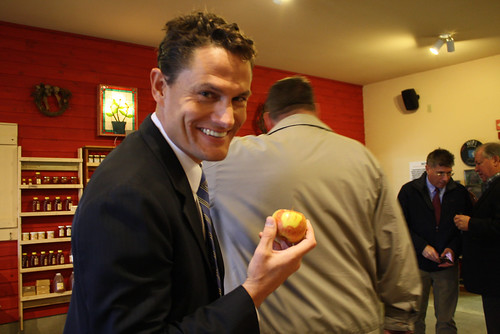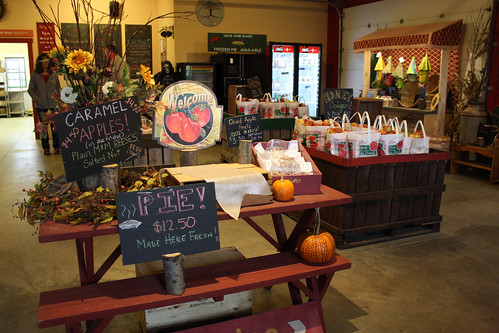
After 21 years of dedicated service in the United States Air Force, Jim and Laura Leffel looked to establish their “forever home.” Both natives of the Midwest, they moved to a small farm south of Eau Claire, Wisconsin to plant their roots, quite literally. Laura and Jim are now owners of Leffel Roots Apple Orchard, a 40 acre property that includes 2,500 apple trees and an on-site store where they sell bakery items, jams, cider, honey and more.
With the help of the U.S. Department of Agriculture, the Leffels will be able to expand their product lines further. Last month, I visited their orchard with Wisconsin Congressman Ron Kind to announce the Leffels were among 325 recipients of Value Added Producer Grant (VAPG) funding totaling over $45 million.
Veterans transitioning to civilian life face many challenges, including finding a good job after their service. The unemployment rate of veterans is more than 20 percent. Value-added agriculture is an appealing and increasingly promising path for transitioning veterans, especially since 45 percent of active service members hail from rural America. Jim Leffel, who grew up on a Wisconsin dairy farm, told me that after he and Laura retired from the Air Force, they yearned for a return to the grounded lifestyle, rooted in hard-work and connectedness to the land that farming offers.

USDA has several initiatives providing a path to farming and ranching careers for members of the military returning from active duty. The Leffels’ successful VAPG grant application was partly due to a veteran farmer and rancher priority authorized by Congress in the 2014 Farm Bill. As Laura Leffel told me, programs like VAPG are important tools for minimizing risk and giving veterans the confidence to try new things.
As we honored past and present service members on Veterans Day last Friday, I thought of the Leffels and the countless other veteran farmers and ranchers USDA supports. I also recall my conversation with Eric Grandon from West Virginia, another veteran who said that farming literally “saved his life.” I am grateful for the sacrifices our service men and women have made and am proud that in some small way, we in Rural Development have the opportunity to serve those who have served our country.



